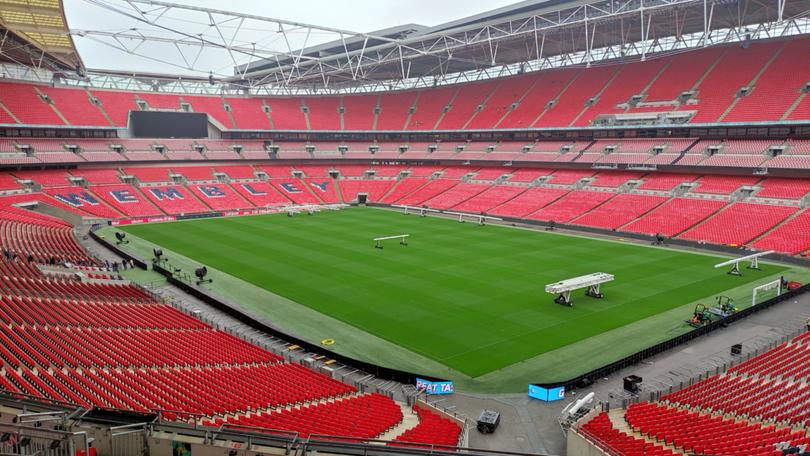Wembley Stadium, often referred to simply as Wembley, is an iconic and historic sports stadium located in Wembley Park, London, England. It is widely regarded as the home of English football and one of the most famous stadiums in the world. Here’s an overview of Wembley Stadium:
History and Construction: The original Wembley Stadium was built in 1923 and was known as the “Empire Stadium.” It was constructed to host the British Empire Exhibition and officially opened on April 28, 1923. The stadium quickly became synonymous with significant sporting events and iconic moments in football history.
The Old Wembley’s Legacy: The original Wembley Stadium witnessed numerous historic football matches, including the 1966 FIFA World Cup Final, where England won their first and only World Cup title. Geoff Hurst’s famous hat-trick in that final against West Germany remains one of the stadium’s most cherished memories. Additionally, the stadium hosted several FA Cup finals and England national team matches.
Reconstruction: In 2003, the old Wembley Stadium was demolished to make way for a new and modern version. The demolition of the old stadium was met with nostalgia from football fans around the world, but the construction of a state-of-the-art facility aimed to uphold its legacy while providing a modern and comfortable experience for spectators.
The New Wembley: The construction of the new Wembley Stadium began in 2004, and it officially opened on March 9, 2007, with the hosting of the FA Cup Final. The stadium boasts an iconic arch that spans the entire length of the structure, making it an unmistakable landmark on the London skyline.
Design and Features: The new Wembley Stadium has a seating capacity of approximately 90,000, making it the second-largest stadium in Europe, just behind Camp Nou in Barcelona. It is designed as a multi-purpose venue, hosting not only football matches but also other sporting events, concerts, and entertainment shows.
Football and Sports Events: Wembley Stadium continues to be the primary venue for English football’s showpiece events, including the FA Cup Final and the EFL Cup Final. Additionally, it regularly hosts England national team matches, particularly during qualification campaigns and friendly fixtures.
The stadium’s prestige extends beyond domestic football. Wembley has been selected as the venue for several UEFA Champions League finals, the UEFA European Championship (Euro) final in 2020 (postponed to 2021), and other major football events.
Concerts and Entertainment: In addition to sporting events, Wembley Stadium has become a sought-after venue for concerts and other entertainment shows. Numerous renowned artists and bands have performed at the stadium, making it a prominent destination for music enthusiasts.
Conclusion: Wembley Stadium remains an enduring symbol of English football heritage and a venue steeped in history and tradition. From its beginnings as the Empire Stadium to its current status as a modern sporting and entertainment arena, Wembley continues to captivate football fans and spectators from around the world. Its iconic design, capacity to host major events, and rich history ensure that Wembley will remain a cherished venue for generations to come.



















Add Comment